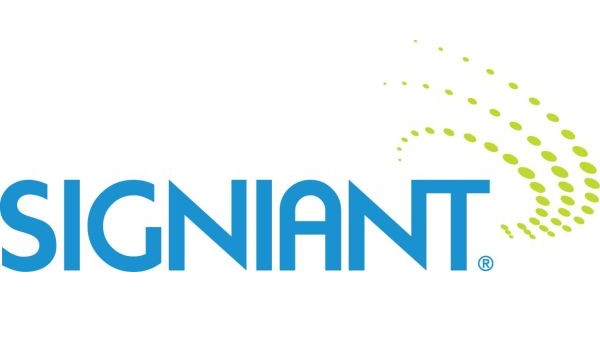NAB Seeks 39-Month Repack Deadline Waiver Process
The professional video industry's #1 source for news, trends and product and tech information. Sign up below.
You are now subscribed
Your newsletter sign-up was successful
WASHINGTON—Give us liberty from the 39-month repack deadline, or give us a waiver process, the National Association of Broadcasters told the Federal Communications Commission in comments filed on the commission’s post-incentive auction channel repacking proposal.
“While all five commissioners have publicly stated that no station will be forced off the air if it is unable to meet the FCC’s arbitrary 39-month cutoff, that is precisely what the current rules provide,” the NAB said in comments filed Friday. “The analysis reflected in the Public Notice setting forth the proposed scheduling plan confirms that the commission anticipates more than 1,100 U.S. stations will need to move to new channels at an 84 MHz clearing target. While broadcasters have every incentive to move as quickly as possible, there is no reason for the commission to make television stations and their viewers unnecessary victims of a deadline that has little chance of being met and only risks creating inefficiency and delay. At a minimum, the commission should set forth a clear and predictable waiver standard in the event its deadline proves unachievable.”
The FCC’s Public Notice, issued Sept. 30, laid out a proposal to repack TV stations on a market-by-market basis. (See, “FCC Proposes DMA-Level Repack,” Sept. 30, 2016.) The repack process will begin when the incentive auction—now in its third stage with a clearing target of 108 MHz—closes. This clearing target has dropped with each success stage as bidding failed to cover the price at which broadcasters have been willing to sell, plus meet the statutory funding of the repack and of conducting the auction.
LINKED SETS
At 84 MHz, a total of 1,274 stations will have to move to new channel assignments, according to the Public Notice, which also outlines the timeline and procedure of the repack and all the administrative steps necessary for the move. (See, “FCC Repack Plan Key Points,” Oct. 5, 2016.) Of those, 710 are “linked” to others in a sort of interference daisy-chain, thus moves must be coordinated among those linked stations. The NAB, along with the participants of a recent Wiley Rein repack event, say 39 months is not enough time to get the job done.
“No station in television history has ever attempted to construct new facilities while more than one thousand other television stations are doing so simultaneously,” the NAB noted. “While the record of this proceeding reflects disagreement concerning the level of resources available to complete the transition of repacked broadcasters to new channels, the scope of repacking should at least give the FCC pause in presuming that the time allowed for a single station to construct new facilities will prove adequate to move more than a thousand stations at once.”
The NAB further said the three-month window for filing construction permits and cost estimates “will force stations to make estimates and assumptions that will likely prove inaccurate” and inadvertently dry up the $1.75 billion repack reimbursement fund authorized by Congress.
VENDOR PRESSURE
The NAB also said there’s no assurance that vendors will line up according to the FCC’s 10-phase repack plan: “In many cases, vendors will process orders on a first-come, first-served basis, regardless of a station’s assigned phase. Some vendors also have preferred-customer arrangements with broadcasters that will be far more important to those vendors than the commission’s phase assignments.”
Furthermore, many stations will have to build temporary facilities to meet the 39-month deadline if they’re not willing to go off the air temporarily, creating even more demand of the limited number of vendors who can move a TV signal to another frequency. The resulting pressure feasibly could lead to more accidents among tower crews, the NAB said.
The broadcast lobby had no objection to the 10-phase repack approach per se, but suggested the FCC wait until stations complete engineering and structural studies before assigning them to a phase, allow stations to request reassignment to a different phase, and to be flexible on the deadlines within each phase.
“The commission’s proposed scheduling plan makes no accommodation for predictable weather events, including heavy snowpack in some areas, hurricane season and tornado season, all of which may cause delays. The commission’s proposed scheduling plan also does not take into account programming complications, such as ratings periods and the mid-term political window. Forcing stations to change channels during such periods could be disastrous for those stations,” the NAB said.
INFO EXCHANGE
The NAB also said the commission should facilitate communications among stations during the repack. E.g., when a station in a linked set has a handle on its completion date, that information would be reported to the FCC and shared with other stations in that set. This would allow stations to coordinate view education efforts and minimize the number of rescans households will have to do to tune in over-the-air channels.
The NAB asked that the quiet period be lifted for broadcasters once the final stage rule of the auction is met. The FCC has said it would assign channels during the last clock phase of the forward auction once the final stage rule is met, and notify each station by confidential letter. The NAB asked that stations be able to share that information right away versus waiting for the commission to issue its “Auction Closing and Channel Reassignment Public Notice” after the auction formally closes.
The NAB said the commission should also consider enabling temporary channel-sharing and allow associated costs to be reimbursed, and to let stations voluntarily accept additional interference to change phase assignments, break daisy-chains or “expand facilities beyond those assigned by the commission.”
See more TV Technology coverage at our spectrum auction silo.
The professional video industry's #1 source for news, trends and product and tech information. Sign up below.
